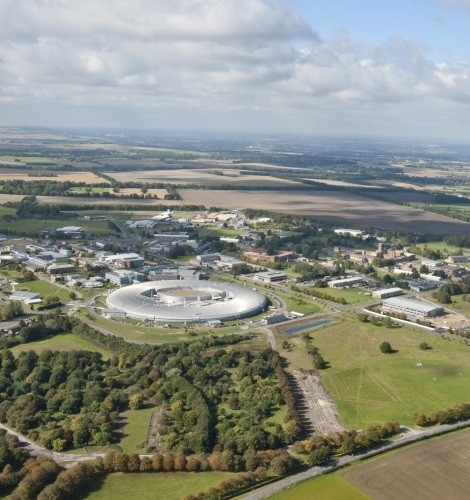The stakes are high and the competition tough – but the UK just took a giant leap into the space industry
The UK is aiming to control 10% of the space industry by 2030.
Tim Peake's voyage to the International Space Station captivated Britain's young people, awakening dreams of becoming an astronaut and increasing interest in STEM education. Now, with the right support, the UK space industry can also generate massive economic value in a hugely exciting and rapidly growing sector. This international industry is ripe for us to profit from it, as a nation of "Merchant Inventors".
Britain is racing towards a new space age, and it is worth taking a moment to appreciate just how far we've come – in the past 15 years alone, our space tech industry has tripled in size. This is testament to the relentless desire for growth and innovation among our scientists and engineers. Our growth is mirrored by an international appetite, with the global space tech industry estimated to be worth well in excess of £500bn ($622bn) by 2020. The stakes are high, and the international competition is tough, but Britain is punching well above its weight.
Building on this intrepid spirit, the Space Innovation and Growth Strategy has set a bold target for the UK to control 10% of the industry by 2030. It's a daring target, but the space industry's open, diverse and competitive environment provides Britain with a great opportunity to achieve this goal.
Gone are the days of dominating Cold War space programmes with structured hierarchies and national agendas. Now even the smallest start-up companies with fewer than 10 employees can participate and disrupt in a growing global space network. Of course these small "Acorn" organisations can also grow into large oaks, or to use US parlance "Unicorns" – referring to companies worth more than $1bn.
Many companies would not get far without the initial support offered by government and industry funding. That's why last week's commitment by the government to invest in space-tech growth was such a promising sign.

The announcement by Jo Johnson, Minister for Science, for new space-related legislation and grants totalling £10m will directly benefit cutting-edge start-ups looking to break into the market. These contributions are starting small, but they will go a long way to further foster an atmosphere of creativity in which a range of companies will be able to compete.
This growth is built on a pedigree of excellence, with Britain being a world leader in satellite-related technology. This expertise is found in fantastically innovative firms operating in the UK, such as Surrey Satellite Technology, Thales Alenia Space and Oxford Space Systems, who have done pioneering work developing a new generation of smaller, cheaper hi-tech satellites.

This space exploration does not operate in a vacuum (pun intended). Success is down to collaboration across the board, involving: academia, research councils, government, venture funds and industry. UK space already directly employs well over 38,000 people across 1,000 different organisations, with many thousands more contributing indirectly via supply and logistics.
It's a vast network, and its continuing growth demonstrates why technological hubs such as Harwell Campus (the designated UK Space Gateway) have such an important role to play in cultivating innovation. Recent advances highlight the terrific results that can arise when all parties work together with the common goal of creating the gateway to space.
The benefits of space technology are all around us in down-to-earth terrestrial applications. Satellite technology, for example, extends far beyond simply improving telecommunications – it encompasses everything from transportation through to medical treatment and weather predictions. In short, it shapes the modern world we inhabit.
The UK has played a leading role in shaping this sector, with space-tech breakthroughs happening in clusters and often under the same roof. Ozone-charting heat maps are used as airport security scanners; light-beam technology is utilised to analyse "super-drug" bacteria; horizontal spacecraft launch technology even opens the prospect of hypersonic transport. The possibilities are endless.
As we herald the arrival of a new age of space technology, we must continue to foster this positive environment for growth and culture of disruptive innovation. Government support, such as the recent investment and proposed Spaceflight Bill, will go a long way towards achieving this.
The future remains bright for space-tech, and Britain doesn't simply have the opportunity to participate. As merchant inventors, we can lead the way in the terrestrial reach for the stars.
Angus Horner is a director at the science and innovation centre Harwell Campus
© Copyright IBTimes 2025. All rights reserved.






















